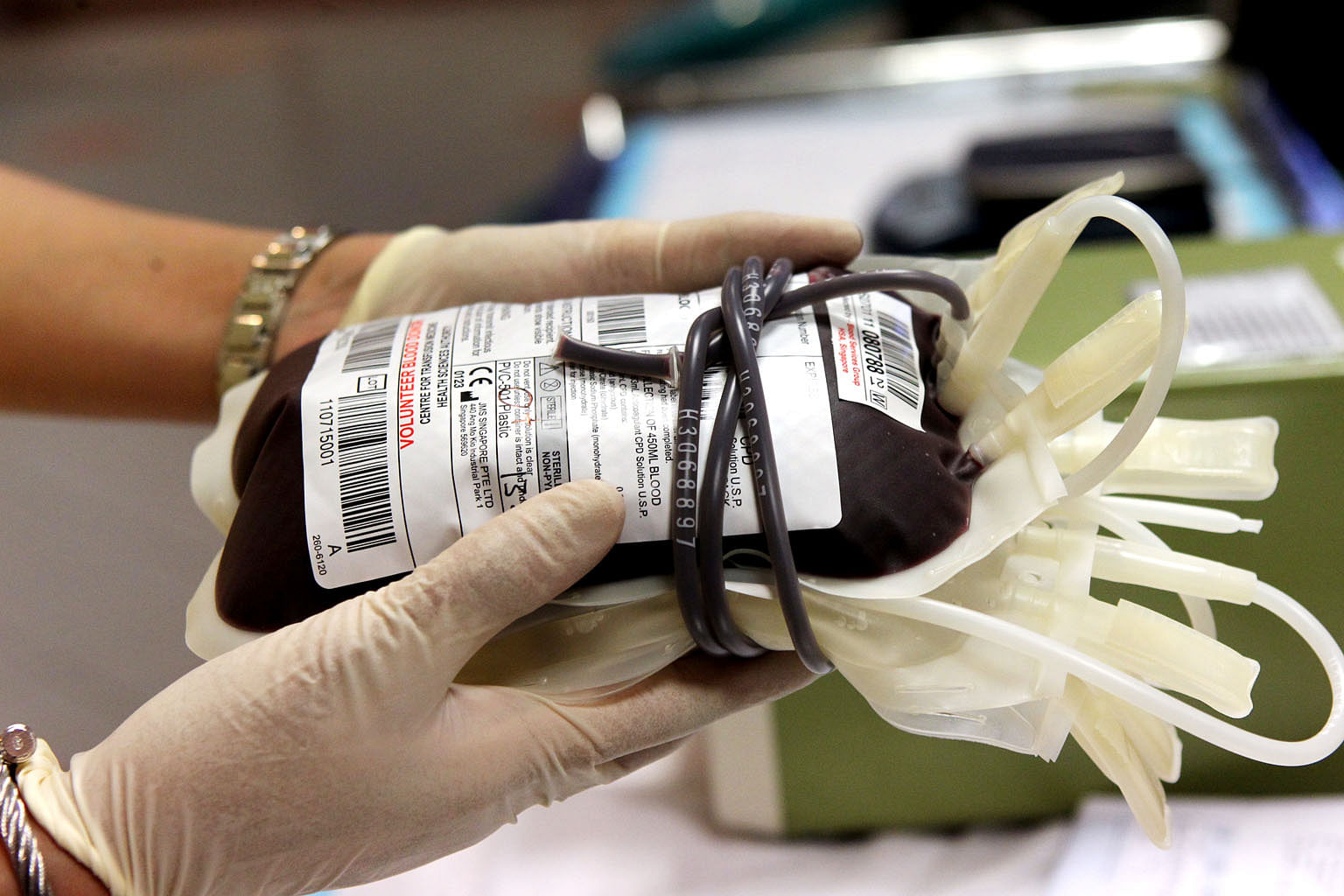While presenting awards to champion blood donors on World Blood Donor Day last month, Minister for Health Gan Kim Yong emphasised that Singapore needs to increase blood donation to meet its increasing blood demand.
This situation is similar to that in most countries, resulting in frequent donation drives.
What is particularly worrying for Singapore is that the number of young donors has decreased by 13 per cent over the last five years, while the demand for blood has increased significantly due to the ageing of society.
We propose that donation is physiologically and psychologically good for donors. So, there are simple, effective and not-too-costly methods to increase donation.
During the hunter-gatherer stage of human evolution, humans faced frequent blood loss in their daily life - especially men. Thus, we as a species are programmed to replenish frequent blood loss.
However, modern living makes this process of blood renewal almost non-existent. This unhealthy situation can be improved by undertaking frequent - but not excessive - blood donation.
Educating people about this simple point will likely mean that voluntary donations can ensure adequate blood supply in most countries. This is particularly relevant in a culture like that of the Chinese. The traditional belief in China is that any part of the body, including even hair and skin - not to mention blood - is from the parents and should not be discarded.

Hence, in the historical novel The Three Kingdoms, when a captain was shot in his left eye with an arrow, he pulled the arrow out with the eyeball along with it. Instead of throwing it away, he said: "(What came forth from) my father's sperm and my mother's blood shall not go to waste", and swallowed the eyeball.
Confucius was also recorded to have said: "Our bodies, including hair and skin, are from our parents. We should not damage them. This is the commencement of being filial."
Another belief is that blood is the essence of life and losing blood will weaken the body significantly.
This half-truth ignores the point that the human body is programmed to replenish blood loss. Those who have donated know that blood donation does not weaken the donor.
Donors give voluntarily because they can also benefit psychologically from doing so.
The act of giving generates a warm glow in the donor - you know that nice feeling you experience when you've just done a good deed? Moreover, healthy donors who feel the unfairness of others suffering from poor health can alleviate their sense of "guilt" by helping ill people back to health.
Also for reasons of fairness, some people are more likely to give if they know others are giving too, while they hold back if they are worried about free-riders who will take but not give. Thus, by giving we are doing our part in society, but by not giving, we discourage others from doing so.
We can grow as a caring society in many ways, and blood is a gift that doesn't cost a cent.
Have you or a relative ever benefited from the blood bank? Such experience drives people to repay society for the kindness of strangers. The recent success of charitable crowdfunding on websites such as Giveasia tells us that we can also "pay it forward" with blood transfusion.
Thus, we should not only raise public awareness of the ill and needy but also celebrate success stories of how donations have actually helped recipients.
Recipients can also do their part by reciprocating with appreciation. "Thank you" cards or special events dedicated to donors gratify the soul and help attract new or repeat donations. In our view, the most effective and least costly method of encouraging blood donation is to have a lesson at school on the physiological basis of healthy blood donation. By understanding how donors are intrinsically motivated, we can then carefully design initiatives to raise donations effectively.
Voluntary donation will likely increase many times, especially in countries influenced by the Confucian culture, including Singapore.
- Ng Yew-Kwang is Winsemius professor in economics, Division of Economics, Nanyang Technological University, Singapore; Jonathan H. W. Tan is associate professor of economics at the University of Nottingham, UK, and visiting scholar at the Economic Growth Centre, NTU.

